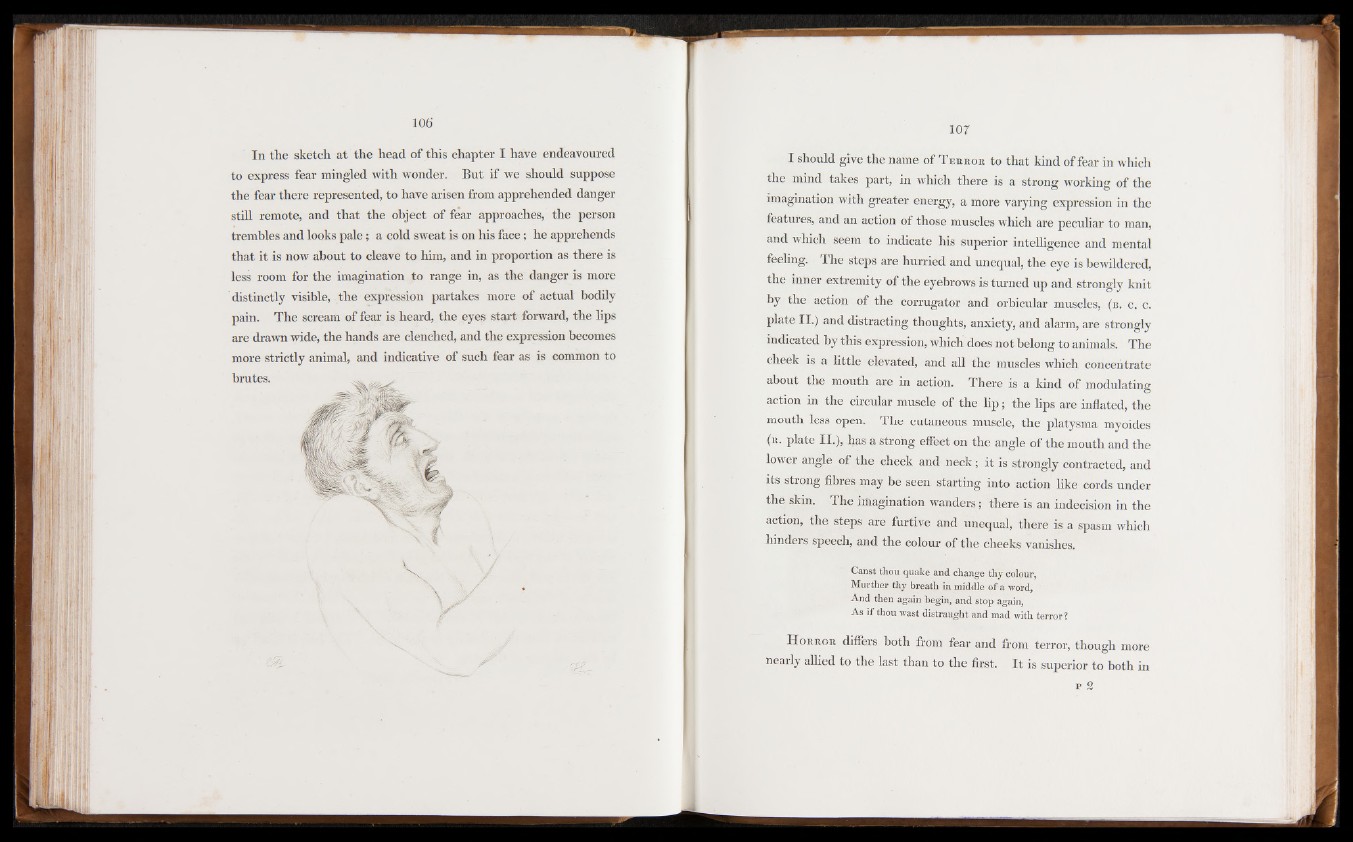
In the sketch at the head of this chapter I have endeavoured
to express fear mingled with wonder. But if we should suppose
the fear there represented, to have arisen from apprehended danger
still remote, and that the object of fear approaches, the person
trembles and looks pale; a cold sweat is on his face; he apprehends
that it is now about to cleave to him, and in proportion as there is
less room for the imagination to range in, as the danger is more
distinctly visible, the expression partakes more of actual bodily
pain. The scream of fear is heard, the eyes start forward, the lips
are drawn wide, the hands are clenched, and the expression becomes
more strictly animal, and indicative of such fear as is common to
brutes.
W . . .
\
I should give the name of T error to that kind of fear in which
the mind takes part, in which there is a strong working of the
imagination with greater energy, a more varying expression in the
features, and an action of those muscles which are peculiar to man,
and which seem to indicate his superior intelligence and mental
feeling. The steps are hurried and unequal, the eye is bewildered,
the inner extremity of the eyebrows is turned up and strongly knit
by the action of the corrugator and orbicular muscles, (b. c. c.
plate II.) and distracting thoughts, anxiety, and alarm, are strongly
indicated by this expression, which does not belong to animals. The
cheek is a little elevated, and all the muscles which concentrate
about the mouth are in action. There is a kind of modulating
action in the circular muscle of the lip; the lips are inflated, the
mouth less open. The cutaneous muscle, the platysma myoides
(r . plate II.), has a strong effect on the angle of the mouth and the
lower angle of the cheek and neck; it is strongly contracted, and
its strong fibres may be seen starting into action like cords under
the skin. The imagination wanders; there is an indecision in the
action, the steps are furtive and unequal, there is a spasm which
hinders speech, and the colour of the cheeks vanishes.
Canst thou quake and change thy colour,
Murther thy breath in middle of a word,
And then again begin, and stop again,
As if thou wast distraught and mad with terror ?
H orror differs both from fear and from terror, though more
nearly allied to the last than to the first. It is superior to both in
p 2